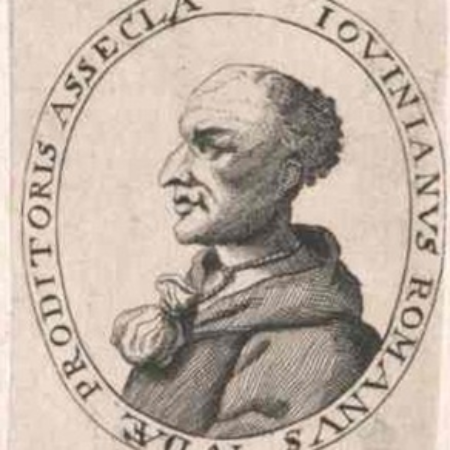Earlier in the year Gareth Bezett, the Director of Theology House, led a study series on church history and heresies. We talked about why some teachings have been rejected by the Church as heresy, as false teachings that are harmful to the true faith and led people astray. Many of the heretics were people that honestly wanted to make the Christian faith more understandable, often more relatable. But in that they often distorted the truth. Gareth said that the early church generally got it right by rejecting heresies.
However, recently I have read about one theologian declared heretic in the late 4th century AD by the Pope. His name was Jovinian and reading about his teachings I cannot see how he was declared a heretic. His teachings were clearly Biblical and the arguments of his opponents were clearly pagan. Nevertheless, Jovinian was declared a heretic and his opponents were judged to be right. Nevertheless, already at the time it was thought that St Jerome in his criticism of Jovinian had overstepped the mark and was far too vitriolic. That is not surprising. The official book on the saints published by the Canadian Anglican Church remarks: “By common consent St Jerome is the most unlikeable person ever called a saint by the Church.”
In the fourth century monasticism became very popular in the Church and Roman society. It was held up to be a holier way of life, which would be rewarded in eternity. Jovinian himself was a monk, but he did not see himself better than other Christians. He advocated that priests in the Church should be allowed to marry. He maintained that those who had accepted Jesus Christ, were baptised and were forgiven were all equally justified and had equal merit. It did not matter whether they were virgins, single widows or married. They were all states of grace. As long as they continued to trust in Jesus and let their lives be transformed by God’s grace, then virgins were not holier or superior. He said that there was one reward in the kingdom of heaven for all who preserved their baptism and had not fallen away from the faith. In the words of Jesus’ parable, all workers would be given the same denarius.
He also argued against asceticism. For him there was no ethical difference between abstaining from food and accepting it with thanksgiving. But in a Church and society in which monks and ascetics were given such prominence and in which the top offices in the Church were occupied by monks this was regarded as heresy. The prestige of the monastics had to be maintained. Even though Jovinian was rejected as a heretic, it seems he was able to live relatively comfortably, but was forbidden to teach and his writings were destroyed. Therefore we only know about Jovinian through the strong writings of his opponents.
The rejection of Jovinian’s teachings later led to the idea that monks and nuns through their holier life achieved such merit that they could transfer it to the ordinary married people, who never really escaped sin. That later led to the adoration of saints, then to indulgences – the selling of the merits of saints to ordinary people, as well as continued sexual deviation among the clergy.
The Reformers, who wanted to do away with the rampant abuse in the Church, could closely identify with Jovinian. They thought that rather than a heretic he was a prophet who had been shut down by the church officials to the detriment of the Church. From everything that I have read I can only conclude that Jovinian was a teacher of Biblical truths who opposed a dangerous form of asceticism. Indeed, one might conclude that the Church was unfaithful by not listening to him. If it had, maybe some of the abuses within the Church would have been less severe.

